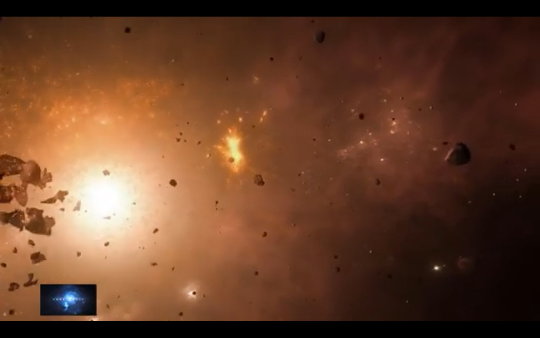#n24 tag
Explore tagged Tumblr posts
Text
this is just me rambling mostly about myself sorry. but i hate how much it Sucks having a completely invisible and often totally unrecognized+dismissed disability 🥲 like i have non-24 hour sleep-wake disorder and it makes it impossible for me to keep a normal schedule (when ive had to - ie when i attended school, or if i were to work any regular job - id get so sleep deprived i couldnt wake myself up and/or would become too drained to function) but circadian rhythm disorders are full on seen as nonexistent by a majority of the population and those that do know of them often think its just "being a night owl" and you "can just work through it with a little discipline". so access to a diagnosis and/or accomodations is virtually nonexistent and i basically just have to either constantly deprive myself of sleep and permanently wreck my health or just put my entire life on hold for almost a third of every month. and im fortunate enough to have a job that (somewhat) allows me to work flexible hours and generally lets me work only the days im awake to, but because of my disorder being so invisible i know that from the perspective of everyone else there i just look like a guy with unpredictable attendance who comes in at inconsistent times and often only stays for like three hours, with nothing at all that makes it obvious that its because of a fucking disability. so to almost everyone that doesnt intimately know me, for the rest of my life, i will look like nothing but a profoundly lazy and unreliable individual. and it sucks!! and it makes me so mad!!! and its hard to face the fact that even what i CAN do still isnt enough so i constantly have to break my fucking back and put a lot of strain on my body just to meet like what are considered bare minimum standards. im constantly walking on thin ice because there is just no understanding from people of what things are like when you have a lifelong disabling condition that cant be fixed. and i still have it relatively easy! bcos during the times when im functional during the day i have pretty much no issues doing so. but for people with an invisible disability that affects their ability to function or work All The Time theyre Still often held to the same standards as everyone else because of perceptions of what "being disabled" is and basically i just really really hate how society treats invisible disabilities. fuck. its not fair or sustainable its literally killing people
#.pdf#rd#n24 tag#SORRY im uhhh. stressed. and mad as fuck about always having to sacrifice my health just to keep my very part time job#and the fact that nobody else can even see that thats whats happening#sorry long post. i thought about putting it under a readmore but its my own blog and im not gonna make my invisible disability even more so
13 notes
·
View notes
Text
how it feels to finally shift into your diurnal phase

#pictured: me running to tackle that huge backlog of daytime things asap#n24#non 24 hour sleep wake disorder#n24swd#non 24#non24#these tags need more posts I should probably put stuff in them more often
2 notes
·
View notes
Text

JINO N24 MUSHROOM CONVERSION HAIR FOR INFANT AND TODDLER ^_^
You will need the adult version
If there are any issues please contact me in dm .
don't reupload
don't resell or put in folders behind paywall
don't claim as your own
don't include the mesh if you make a recolor
you CAN include my conversion in your folders as long as it's free AND give me credits with a tag in your post
please INCLUDE a link back to my Tumblr and to the Original Creator
I would love to see your pics so tag me if you use any of my conversions !
My content is always free so please respect my TOU ♥️
#simblr#the sims 4#ts4 edit#alpha cc#sims 4 cas#my sims#sims 4 alpha#ts4cc#alphacc#sims#sims 4 infants#ts4 infants#ts4 toddlers#sims4ccfinds#sims 4 toddler hair#ts4 hair cc#sims 4 screenshots#the sims#sims 4 hair conversion#download#show us your sims
46 notes
·
View notes
Text



flag id: the leftmost quarter of the left flag has 4 stripes, which are golden yellow, sky blue, faded indigo, and dark blue. the second quarter has those stripes shifted down by half a stripe, with a small section of dark blue at the top. the third quarter has them shifted down again, making the top dark blue section a full stripe. the final quarter is shifted down again, with a small section of faded indigo at the top. the right flag is the same, but each shift down is a full stripe length rather than half of one. end id.
banner id: a 1500x150 teal banner with the words ‘please read my dni before interacting’ in large white text in the center. end id.
two versions of a non-24-hour sleep-wake disorder (n24swd/n24) flag for myself!
both flags use yellow and sky blue for being awake and purple and dark blue for being asleep, with both flags shifting those colors 'forward' several times to represent one's circadian rhythm being out of alignment with the typical 24-hour cycle.
tags: @mad-pride | dni link
#non-24-hour sleep-wake disorder#non-24#n24#n24swd#sleep disorder#circadian rhythm sleep disorder#my flags#new flag#mad pride#mad pride flag#mad flag#liom flag#liom
30 notes
·
View notes
Text
The fact that most of the tags under n24 have nothing to do with the disorder and that there's only a handful of posts under every single tag for it sure FEELS like ableism even though it might not be. But I have the time to talk about it so I might as well spread visibility.
(Info under read more)
N24, Non-24, or Non-24 Sleep-Wake Disorder, is a circadian rhythm disorder where your body doesn't run on a (roughly) 24-hour cycle like most people/people without the disorder itself. For example, my days run roughly 18-19 hours instead of a typical 16. My sleep gets later and later and later. I've tried melatonin, tried resetting my sleep schedule by staying up for >24 hours until a "normal" time for bed, and tried keeping ambient noise on like music or nature sounds. I've tried blue light filters. My days are just 26-27 hours instead of a normal 24, though every person with N24 is different.
It's primarily diagnosed in Blind patients, since the cause among Blind people with the disorder seems to be that not being able to see the transition from day to night makes their bodies not produce the proper sleep hormones at the right time.
Among sighted people, the cause seems to be unknown (last time I checked; just one person with the disorder should not be your only source of information!) and, since N24 among sighted people is more rare and less lucrative, it's an orphan disorder. There's not much research into how to help us sighted people with N24 because treatment is often pricey or not an actual solution, or it is aimed directly towards helping Blind people with N24.
As far as I know, there's apparently an implantable device in development. The main suggestions I see are training via sun lamps and melatonin or just trying to get on sleeping pills by lying about insomnia. There is a pill that can be taken, but if you live in the US, it is extremely expensive. So, essentially, this orphan disorder is overlooked and misdiagnosed, and those of us with it have to hope that one of the coin-toss methods of treating N24 works.
N24, even on its own, can be a very disabling disorder. You're either too-sleep deprived to do the things during the day you need to or are busy being asleep because the human body needs rest at some point. Socialization gets very difficult when your circadian rhythm is nocturnal for a couple of weeks. It's an isolating experience. It also makes it harder for people to work and make themselves money. I don't even know if N24 is something that can apply to an application for disability, though given it's not well-known, I doubt it is.
I'm not used to making informative posts like this, so I don't know how to end it, but please do some research into N24 on your own time--I am by no means a medical professional and my anecdotal explanation may contain errors. I just want people to know we exist.
#n24#non24#non-24#non-24 sleep-wake disorder#non 24 sleep wake disorder#non24 sleep wake disorder#n24swd#disability#disability rights#disabled#disability pride#informative post#circadian rhythm#circadian rhythm disorder#disability advocacy#orphan disorders#orphaned disorders#poli#interesting#abysswords#long post
84 notes
·
View notes
Note
yo i was scrolling through the n24 tag(as desolate as it is,,) and i saw that you're diagnosed. I haven't had a consistent sleep schedule all my life and n24 is the only thing that has ever described my sleeping patterns. I just found out about it and ive been researching like crazy lol. Any tips on getting diagnosed??
YO non-24 gang ✊ all the advice i have is basically the same as getting a diagnosis for any other disorder tbh. i told my doctor about my weird sleep cycle in as much detail as i could, told him i suspected dspd or maybe non-24, and got referred to a sleep specialist where sleep studies were consistent with non-24. SADLY insurance doesn't cover any treatments that could actually do anything helpful, but that's a separate problem
basically just,, bring it up, be as passive as possible (because doctors get mad at you for knowing things about your own body for some reason) and maybe come prepared with a more common disorder like dspd or insomnia as an outside possibility
i hope this is helpful at all??? jdhshsjsks
5 notes
·
View notes
Text

TELEPORT TO MAINSTORE
Landmark: The Sign II Sale Date: 30th March 2025 - 7th April 2025
Anniversary sale information:
50% off all products inworld only excluding releases from the past 3 months.
Don't forget to wear your group tag and earn 10% store credit when you purchase kotte items.
Some older items will be retired to the marketplace after sale.
Thank you so much for the support ♥
Lots of love from, kotte by Angelica Song
Flickr Group: https://www.flickr.com/groups/2907492@N24/
0 notes
Note
About your tags to that sleep poll... have you heard of N24? I don't know if you feel like it applies to you, and obviously I don't know you, but I struggled horrifically to live a normal life before learning there was an actual name for it and so I can't help but want to at least bring up the name when I see others describe similar symptoms. If it doesn't apply then don't worry and also don't feel obliged to respond! I hope you have a lovely day!!
Anon, I have actually heard of it, but I don't really know what I'd do about it. Its not as bad for me as the "struggling horrifically" that you describe, I just end up staying up late when there's not a compelling reason for me to get up early.
Thanks for reaching out with helpful information though!
1 note
·
View note
Text
Aero Media: Die Erde - Ein Planet entsteht
Quelle: N24, TV 2011; Originalspr. Englisch; GB 2011; Earth: Making of a Planet Dr. Andreas Korn: Zusammenfassung in Stichworten mit kleinen Ergänzungen des deutschsprachigen Youtube Videos. Screenshots sind dem Video entnommen; Karten aus Wikipedia. Beitrag 03/03

Erdzeitalter Trias (vor 220 – 190 Millionen Jahren)
Vor 200 Mio. Jahren (als 50 Mio. Jahre nach dem Massenaussterben), hat sich die Erde wieder einmal verändert; es besteht nur ein Superkontinent (Pangäa), der sich vom Nord bis zum Südpol erstreckt; die Temperatur wird wieder moderat, Pflanzen kehren zurück und die Dinosaurier erobern die Welt (z.B. Ammosaurier mit 4,5 m Länge oder Dilophosaurus), sie sind Nachfahren der wenigen Reptilien, die das Massensterben überstanden hatten.
Erdzeitalter Jura (vor 190 – 135 Millionen Jahren)
Vor 190 Mio. Jahren zerbricht der Superkontinent durch das Aufbrechen der Erde an dünneren Erdkrustenbereichen (austretende Lava); die Erdplatten driften auseinander und trennen Landmassen; Flüsse spülen Nährstoffe in die Ozeane und ziehen Millionen Fische an; die aus dem Überangebot abgestorben Fische und das Plankton bedecken den Meeresboden; später werden die Überreste von Sedimentschichten in den folgenden 10 Mio. Jahren bedeckt und über den mächtigen Druck und Hitze aus dem Erdinneren zu Erdöl umgewandelt.
Vor 180 Mio. Jahren driftet die amerikanische weiter von der eurasischen Platte weg (wenige cm pro Jahr); der atlantische Ozean entsteht dazwischen; ungeheure Kräfte arbeiten am mittelatlantischen Rücken, hebt und senkt Krusten und Erdbereiche; Inseln und Landmassen verändern sich; auf diese Veränderungen müssen sich auch die Lebensformen anpassen; der Ichthyosaurier (4 m lang; sieht dem Delphin ähnlich, ak), ihre Vorfahren Landreptilien, nun erschließt diese Art den neuen großen atl. Ozean; 50 Mio. Jahre beherrscht der geschickte Jäger die Ozeane der Erde; dann kommt der „Bus große“ Pliosaurier, der nun das Meer erobert und den Ichthyosaurier verdrängt; die Riesenechsen dominieren in der damaligen Welt.
Erdzeitalter Tertiär (vor 70 – 2 Millionen Jahren)
Vor 65 Mio. Jahren haben die Dinosaurier, die bereits 160 Mio. Jahre auf der Erde den Gefahren getrotzt hatten, auf der Erde dominiert; kleine meist nachtaktive spitzmausartige Säugetiere leben auf den Bäumen und unter der Erde.
Eine extreme Katastrophe naht: mit einem etwa 10 km großen Asteroiden (70 TKm/h) kommt die nächste gewaltige Zerstörungswelle auf die Erde zu; er schlägt im Golf von Mexico in der Nähe der Küste vor der Halbinsel Yucatan ein; der Asteroid zerstört beim Aufprall alles in seiner Umgebung mit der Kraft von Millionen Atombomben; er selbst verdampft dabei auch sehr schnell; eine enorme Druckwelle breitet sich blitzschnell aus; zugleich wird ein Feuersturm ausgelöst, der kilometerweit über das Land hinweg fegt; nach dem Aufprall bricht auf der Erde die Hölle los; in tausenden KM Entfernung regnen Trümmer vom Himmel, Springfluten zerstören die Küsten, Erdbeben erschüttern die Erde; Staub und Rauch verfüllt die Atmosphäre auf dem gesamten Planenten; Wälder und Grasland gehen bei der enormen Hitzewelle in Flammen auf; noch Monate später ist das Sonnenlicht verdunkelt; Pflanzen und Dinosaurier sterben; nur kleine Säugetiere (Allesfresser), die z.T. unter der Erde leben (Erdhöhlen), haben eine Überlebens Chance; damit beginnt ein neues Kapitel der Erdgeschichte.
Vor 47 Mio. Jahren sind die Riesenechsen verschwunden; die Erde hat sich in etwa 18 Mio. Jahren nach der Katastrophe wieder etwas erholt; die Säugetiere haben nun geeignete Entwicklungsbedingungen; „Darwinius Marcillae“ ist ein affenähnliches Wesen (Vorläufer der Menschenaffen), welches später in unserem Zeitalter als Fossil ausgegraben wird („Ida“ genannt); die Luftzusammensetzung ist ähnlich wie heute mit Temperaturen um 24°; ein Tag dauert nun bereits 24 Stunden; Indien „prallt“ nordwärts auf die eurasische Platte (Bildung des Himalaya Gebirges durch die aufschiebende Erdplatten).
Vor 20 Mio. Jahren sind die Kontinente fast so, wie wir sie heute kennen; aber die Menschen sind noch nicht entwickelt.
Vor 4 Mio. Jahren: Am großen ostafrikanischen Grabenbruch entstehen östlich hohe Gebirge, westlich in der Senke breitet sich üppiger Regenwald aus; die Berge verhindern aber den Drift feuchter Luft ins westliche Tal, die Temperatur steigt und die Wälder versteppen zur trockenen Savanne mit deutlich weniger Nahrungsquellen; der Lebensraum für Tiere ist bedroht; sie müssen zu besseren Orten aufbrechen; auf 4 Beinen kommen die Affenwesen nicht so gut voran, besser geht es auf 2 Beinen; und dieser Evolutionsschritt (meine Formulierung ak) führt zur Weiterentwicklung dieser Spezies.
Erdzeitalter Quartär (vor 2 Millionen Jahren – heute)
Vor 1,5 Mio. Jahren: der Homo Erectus durchstreift das Land; seine Fußabdrücke sehen aus wie unsere [Anm.: etwas ungenau, erste Fuss Spuren von Austrapithecus afarensis stammen aus der Zeit vor ca. 3,6 Mio. Jahren; vgl. https://www.deutschlandfunk.de/vulkanasche-in-tansania-was-fussabdruecke-ueber-100.html]
Vor 70.000 Jahren: das Klima ändert sich erneut und der Meeresspiegel sinkt stark ab; Afrika und Arabien sind jetzt nur noch wenige Kilometer voneinander getrennt; dies nutzt, so eine Annahme, eine Anzahl von wagemutigen Vormenschen aus (Homo Sapiens), um Afrika zu verlassen und Neuland zu betreten (möglicherweise ist dies bereits früher, ca. 125.000 Jahren erfolgt); es wird angenommen, dass Menschen außerhalb Afrikas von diesen paar hundert Wesen abstammen; sie breiten sich nach Indien, Asien und Europa aus.
Vor 40.000 Jahren schiebt sich eine große Eiswand vom Nordpol südwärts (Wurm Eiszeit in Nordeuropa); Ursachen: die Umlaufbahn der Erde schwankt, der CO2 Gehalt ist gesunken, auch die warmen Meeresströmungen haben sich verändert.
Vor 20.000 Jahren kommen die Gletscher zum Stillstand; in den kilometerdicken Eismassen sind Millionen Liter Wasser gebunden; der Meeresspiegel sinkt; zwischen Sibirien und Alaska entsteht eine Landzunge; nun können Menschen von Asien über die Landbrücke in eine neue Welt gelangen (Amerika).
Vor 14.000 Jahren: die Gletscher ziehen sich wieder zurück und zeigen eine veränderte Landschaft mit ihren „Narben“ und Mulden (große Seen Nordamerikas).
Vor ca. 6.000 Jahren ziehen sich der letzte Rest in die Arktis und Antarktis zurück. Die wesentliche Geschichte der Entstehung der Erde ist nun im Dokumentationsvideo abgeschlossen.
Nun sind wir in unserer Gegenwart angekommen.
Dr. Andreas Korn, 07.09.2023
+ + + +
0 notes
Photo




MAKEUP DUMP N2
4 Eyeshadows
✩ All genders, Teen - Elder
✩ HQ and Slider compatible
-
Fireside Eyeshadow
✩ 15 Swatches
Mad Sounds Eyeshadow
✩ 10 Swatches
R U Mine Eyeshadow
✩ 5 Swatches
Arabella Eyeshadow
✩ 15 Swatches
-
Please notify me if there’s any problems with it!
✩ Read my TOU’s ✩
DOWNLOAD (Patreon; free!)
☽✩☾
Feel free to tag me if you use, I’d love to see! ♥
#s4#s4cc#ts4#ts4cc#the sims#sims 4#simblr#cc finds#custom content#download#cas#my cc#evellsims#s4 eyeshadow#sims 4 eyeshadow#s4 makeup#sims 4 makeup
3K notes
·
View notes
Text
If it was like, a fucking Choice I wouldn't hate being awake all night nearly as much but when my Accursed Disease puts me on a nocturnal schedule whether I like it or not its just so hard to want to do anything it makes me so mad it fucking sucks. good god. its like seasonal depression cos i sleep right through all the fuckin daylight except i get to experience it every 2-3 weeks all year round:) yay:) kill me
#i have... stuff i want to do but everything feels so pointless when the entire world seems so dark and cold (metaphorically) and uncaring#i hate the quiet and i hate being alone and then going to sleep just before everyone wakes up and sleeping thru the time everyones awake#i usually try to fill my time with watching stuff so i can still hear human voices but it doesnt really help.#.pdf#kd#rd#n24 tag#sorry this is just me bitching im just mad that this is how i am and bitter that nothing fixes it for me like it seems to for other people#immensely jealous of those who dont have to deal with this.
6 notes
·
View notes
Note
Hi! I'm so sorry to be a bother but I was just wondering wcif the lipstick/s with the darker lipliner you've used in posts post/671890677828911104 and post/669039643886518272 please? I looked through your wcif tag and also through your makeup tag on your cc blog but I couldn't find it, so sorry if I missed it, feel free to disregard and I'll look again! Happy holidays 💖✨

here ! (lips n24) the lipliner is apart of the lipstick, I just use the sliders to darken it. there's also a gloss overlay but the creator's blog is gone, you can dm me and I'll send the file ! and you're not a bother at all ! I'm sorry you had to go through my cc finds I haven't updated it in a while jsdhfbs I appreciate it though
#asks#wcif#anonymous#if I can't send the file in dms I can give you my discord#happy holidays to you too !! <3
73 notes
·
View notes
Text
Pam CC

Chain necklace: https://www.patreon.com/posts/rimings-chanel-57162317
Skirt : https://nsves.tumblr.com/post/670386879981551616/rena-midi-dl-mediafire-alt-24-swatches
Brows : https://atomiclight.tumblr.com/tagged/mycc
Lashes: https://www.patreon.com/posts/3d-eyelashes-4-62899753
Skin: https://www.thesimsresource.com/downloads/details/category/sims4-skintones/title/kara-skin/id/1351944/
Hair: https://www.thesimsresource.com/artists/wingssims/downloads/details/category/sims4-hair-hairstyles-female/title/wings-hair-m4-atmosphere-f/id/1342477/
Lips (N24): https://www.patreon.com/posts/summer-time-53145480
Body preset: https://www.patreon.com/posts/bella-body-53423372
Lips preset : https://www.simsdom.com/downloads/279591/sammi-lip-preset-wb-sims4
Shoes: https://www.patreon.com/posts/la-carte-wedge-58581190
Shirt: https://newen092.tumblr.com/post/621796840541683713/newen-sims4-military-open-jacket-top-new
Eyeliner: https://goppolsme.wixsite.com/goppolsme/single-post/gpme-gold-makeup-set-cc22
Cheek contour:https://goppolsme.wixsite.com/goppolsme/single-post/2019/03/15/GPME-Cheek-Contour-C3
31 notes
·
View notes
Text

TELEPORT TO MAINSTORE
Landmark: The Sign II Sale Date: 27th March 2024 - 4th April 2024
Anniversary sale information:
50% off all products inworld only excluding releases from the past 3 months.
Don't forget to wear your group tag and earn 10% store credit when you purchase kotte items.
Group join fee will be rise after sale period.
Some older items will be retired to the marketplace after sale.
Thank you so much for the support ♥
Lots of love from, kotte by Angelica Song
Flickr Group: https://www.flickr.com/groups/2907492@N24/
0 notes
Text
pixxyofice replied:
I tag the new agent three as neo agent 3! new agent 3 definitely works I think. And yes the previous agent 3 is captain 3 Still have no clue how the ship names will work with the new 3...
weemstar replied:
Agent 3²
Two kinds of people
And I think the solution is pretty simple: New X (X=ship number)
New Agent 3 and Agent 8? New 24
Or maybe just...New8. Just abbreviate “New Agent 3″ to New, it shockingly makes a lot of intuitive sense
Could also do N24, N=8, lots of fun math ways to go about it
Or go with weemstar’s method and do 8^3, Agent 512, that won’t get weird fast for anyone
4 notes
·
View notes
Text
Aero Media: Die Erde - Ein Planet entsteht
Quelle: N24, TV 2011; Originalspr. Englisch; GB 2011; Earth: Making of a Planet Dr. Andreas Korn: Zusammenfassung in Stichworten mit kleinen Ergänzungen des deutschsprachigen Youtube Videos. Screenshots sind dem Video entnommen; Karten aus Wikipedia. Beitrag 01/03

Erdzeitalter: Präkambrium (vor 5 Milliarden – 600 Millionen Jahren)
Vor ca. 5.000 Mio. Jahren wird unsere Sonne geboren; eingehüllt in eine große Staub-, Gas-, und Partikelwolke; die Schwerkraft formt langsam Teilchen zu Materie Gesteinsbrocken, die in Millionen Jahren verklumpen und schließlich die Planeten und unsere Erde entstehen lassen.
Vor etwa 4.500 Mio. Jahren: Der Planet Erde ist nun aus Staub, Gasen und Trümmern zu einer stattlichen Größe herangewachsen; die Oberfläche der sehr frühen Erde mit einer Temperatur von 1200° besteht aus flüssigem geschmolzenem Stein; Kohlendioxid, Stickstoff und Dampf; fester Boden existiert noch nicht, nur ein endloser Lava Ozean.
Ein anderer marsgroßer Planet namens Theia rast mit einer ungeheuerlichen Wucht auf die Erde und schlägt ein; eine Druckwelle rast um die Erde und Billionen Tonnen Material wird ins All geschleudert. In der Folge der nächsten Tausend Jahre erzeugt die Erde durch Schwerkraft einen Ring dieses Materials, der die Erde umgibt; daraus formt sich eine Kugel von mehr als 3.000 Km Durchmesser; der Mond formt sich und rotiert in ca. 22.000 Km Entfernung um die Erde (heute ca. 400.000 Km). Langsam kühlt die Erde ab, Tag und Nachtwechsel gehen aufgrund der schnellen Erdrotation durch die Kollision mit Theia sehr schnell (3 Std.; Tagesdauer 6 Std.).
Vor 3.900 Mio. Jahren beginnt ein „Großes Bombardement“ mit Meteoriten, Trümmern und Kometen vom Rand des Sonnensystems; in Meteoriten gibt es winzige Kristalle, die Wasser Tröpfchen beinhalten. Eine Theorie legt die Vermutung nahe, dass über die hunderte Mio. Jahre andauernden Niedergänge der Himmelskörper (sie kamen aus Millionen km Entfernung) sich Wasser angesammelt hatte; Becken füllen sich mit Wasser auf der mittlerweile festen Oberfläche; jeder Tropfen Wasser in einer Pfütze oder im Ozean ist somit Milliarden Jahre alt. Stürme und gewaltige Gezeitenwellen (naher Mond) rollen über den Planeten; aber in der Folgeentwicklung entfernt sich der Mond und die Erddrehung wird langsamer, der Urozean beruhigt sich.
Vor 3.800 Mio. Jahren: geschmolzenes Gestein durchbricht die Erdkruste, Vulkaninseln erheben sich aus dem Ozean, sich fügen sich über lange Zeiträume z.T. zusammen und bilden so erste Landmassen in der noch giftigen und heißen Uratmosphäre; wieder nimmt der Meteoritenhagel wieder zu; die Brocken aus dem All stürzen bis auf den Meeresgrund; sie beinhalten auch Kohlenstoffverbindungen und Proteinbausteine (Aminosäuren); aus Schloten (Schwarze Raucher) werden am Meeresgrund versickertes Wasser, Mineralien und Gase ausgestoßen, kommen nun die Stoffe aus dem All hinzu, so entsteht eine besondere Suppe an Substanzen; in der Folge haben sich erste einfache einzellige Mikroorganismen gebildet, die frühesten Lebensformen unserer Erde; viele Mio. Jahre geht dieser Prozess weiter, ohne das zunächst gravierende Änderungen erfolgen.
Vor 3.500 Mio. Jahren bilden sich in flacheren Gewässern in Küstennähe sog. Stromatolithen, einer Kolonie von lebenden Bakterien in einer Pilz ähnlichen kugeligen Form; diese produzieren durch Photosynthese im Zusammenspiel mit dem Sonnenlicht Sauerstoff und Kohlenhydrate (dadurch entsteht Kalk; vgl. https://www.zdf.de/dokumentation/terra-x/creative-commons-clip-150.html); der Sauerstoff reagiert mit Spuren von Eisen im Wasser und bildet rostige eisenhaltige Ablagerungen, die sich am Boden ablagern (Rohstoff für das später von uns geförderte Eisenerz); dieser Prozess hält ca. 2 Mrd. Jahre an; der Gehalt an Sauerstoff im Meer und in der Luft steigt an.
Vor 1.500 Mio. Jahren. Einen langen Zeitraum später dreht sich die Erde langsamer, die Tageslänge beträgt nun ca. 16 Std.; der Urozean zeigt viele kleine Inselbereiche; durch den enormen Druck und der Hitze des Erdkerns bewegen sich die Materialien nach oben, die Erdkruste unter dem Ozean zerbricht in der Folge zu großen Platten; dadurch werden auch die Landmassen bewegt.
Vor ca. 1.100 Mio. Jahren (also 400 Mio. Jahre später nach dem einsetzenden Plattendrift) entwickelte sich so ein neuer gewaltiger Kontinent Rodinia (Grafik: vgl. Wikipedia); Temperatur ca. 30°, Tageslänge jetzt 18 Std.; die Landbereiche sehen in etwa so aus wie auf dem heutigen Mars.
Vor 750 Mio. Jahren. Der Urkontinent wird durch einen großen Riss der Kruste in 2 Teile geteilt; aktive Vulkane pumpen große Mengen Kohlendioxid in die Atmosphäre; die Mischung des Gases mit Wasser führt zu saurem Regen; Gestein saugt den Regen auf und absorbiert große Teile des Kohlendioxids (Einlagerung im Gestein); es gibt nicht mehr genug CO2 um die Sonnenwärme in der Atmosphäre zu halten; innerhalb der nächsten paar Tausend Jahren fällt die Temperatur auf vermutete -50°; die Erde wird schrittweise zu einer geschlossenen Eiswüste (Schneeball Erde) mit einem kilometerdicken Eispanzer; je mehr Eis, desto mehr Sonnenlicht wird reflektiert; dies steigert die Eisausbreitung weiter, bis sich auch von den Polkappen am Äquator zusätzliche Eisschichten treffen.
Vor 630 Mio. Jahren ist die Erde vollständig eingefroren; die Sonne selbst kann das Eis nicht mehr auftauen. Aber dann wird die Erde doch wieder aus dem Kälteschlaf aufgeweckt; der Kern der Erde, heißer als die Sonnenoberfläche, lässt wieder Vulkane entstehen, die den Eispanzer Schritt für Schritt durchdringen; dadurch steigt die Kohlendioxid Konzentration in der Atmosphäre (Gestein, was bislang CO2 gespeichert hatte, liegt ja unter dem Eismantel); das austretende Gas speichert wieder mehr Sonnenwärme, die Temperaturen stiegen langsam wieder an; und im Verlauf von ca. 15 Mio. Jahren beginnt das Eis zu schmelzen; Risse in der Kruste (durch den Druck der Eismassen) führen zu gesteigerten Magma Ausbrüchen; in der Schneeballphase hatte sich im Eis durch die ultraviolette Strahlung der Sonne eine sauerstoffreiche Chemikalie gebildet: Wasserstoffperoxid. Bei der Eisschmelze zerfällt das darin gelöste Wasserstoffperoxid und große Sauerstoffmengen werden dabei freigesetzt.
Dr. Andreas Korn, 07.09.2023
+ + +
0 notes